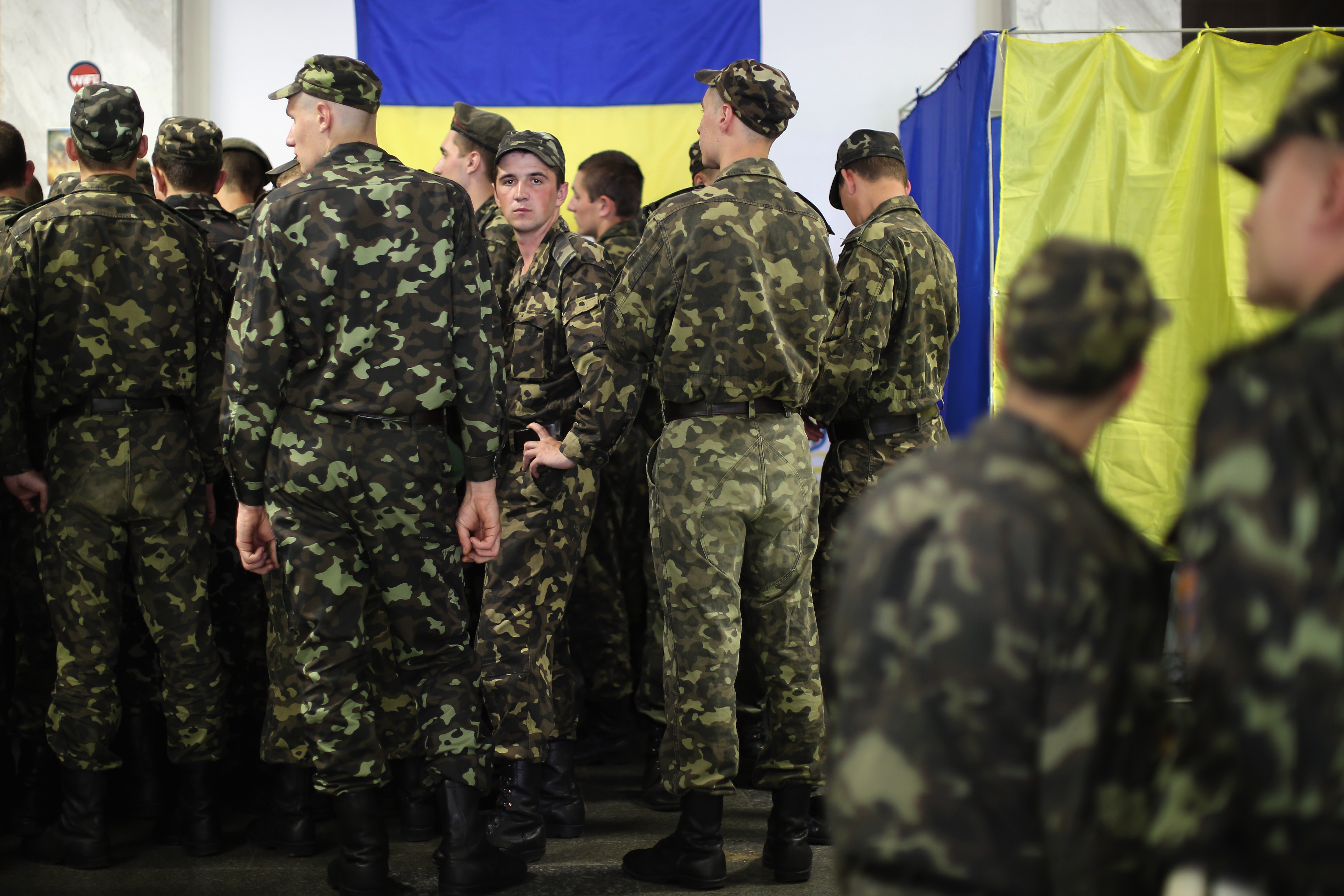The case for arming Ukraine
Ukraine isn't another Iraq or Libya. And Kiev has every right to a robust self-defense.


A free daily email with the biggest news stories of the day – and the best features from TheWeek.com
You are now subscribed
Your newsletter sign-up was successful
President Obama this week indicated that the U.S. may supply weapons to Ukraine's outgunned army, which is battling separatists in the eastern half of the country who are being supported by Russia — despite President Vladimir Putin's assertions to the contrary. Not everyone thinks that arming Ukraine is a great idea.
The best such argument is that it will infuriate Putin. This is not a trivial concern. Russia has a massive, high-tech army — and, of course, the world's largest stockpile of nuclear weapons. Putin has made it clear that he sees the U.S. as a major cause of Russia's economic woes and humiliating demotion from global superpower, and he's not wrong. Due to self-interest and perhaps a pinch of pique, Putin has sided with Syria, Iran, and other American antagonists, becoming a thorn in Obama's side.
There are also other reasons not to send lethal aid to Kiev. The Week's Michael Brendan Dougherty persuasively argues that what happens in Ukraine isn't America's business, and throwing fuel on the raging fire would only prolong a war that Kiev has already lost. If the U.S. arms Kiev, it's likely more people will die than if it doesn't.
The Week
Escape your echo chamber. Get the facts behind the news, plus analysis from multiple perspectives.

Sign up for The Week's Free Newsletters
From our morning news briefing to a weekly Good News Newsletter, get the best of The Week delivered directly to your inbox.
From our morning news briefing to a weekly Good News Newsletter, get the best of The Week delivered directly to your inbox.
The U.S. might want to arm Ukraine anyway.
First, Ukraine has every right to defend itself against what amounts to a foreign invasion by a vastly more powerful neighbor. The U.S. wouldn't be arming an insurgency or trying to take out a democratically elected leader, as it has done on occasion. International law is on Kiev's side, and Russia won't cop to its invasion partly because it doesn't have a legal leg to stand on.
In Iraq, Libya, Syria, and so many other places, the U.S. had to come up with some (occasionally shoddy) justification to intervene. It doesn't here. This isn't a case of "responsibility to protect," a controversial doctrine, or "nation building" or "regime change" — it's supporting a sovereign, internationally recognized government from foreign invasion. To be clear, the U.S. has no obligation to send in military aid — Ukraine isn't, and probably shouldn't be, part of NATO. But if it is to have a shot at keeping itself largely intact, Ukraine needs help.
The U.S. gives massive amounts of military aid to Egypt, Israel, Pakistan, and other nations, not because America is nice. And the U.S. has a pretty robust strategic incentive in preventing Russia from expanding into neighboring countries and not-so-subtly trying to reclaim its fractured empire.
A free daily email with the biggest news stories of the day – and the best features from TheWeek.com
An aggressively expansionist Russia threatens America's allies in Western Europe. And if Putin tries a similar form of stealth annexation on Baltic members of NATO, the U.S. is obliged to respond with force. If arming Ukraine convinces Putin that this and future battles aren't worth the blood and treasure, isn't it better to fight yet another proxy war with Russia in Ukraine than an actual hot war in Latvia?
Putin seems to respect force more than soft diplomacy. Just ask his friends. With Russia, "you cannot give in," Franz J. Sedelmayer, a former Putin associate, told The New York Times. "Russia only respects the language of strength. Nothing else works."
Moscow's tactics "are always the same — drag things out so long that everyone gives up," he added.
And Sedelmayer should know. A look at reams of court documents, says Andrew Higgins at The New York Times, "shows the extent to which the Kremlin will stubbornly pursue even a seemingly counterproductive strategy in the name of defending its national interests."
The best solution to the Ukraine conflict, of course, is a peaceful, diplomatic one. It would be nice if Putin were presented with a face-saving way to quit de facto annexing large sections of Ukraine — and maybe, since he claims not to be arming the separatists, Putin will be able to blame a rebel loss on villainous U.S. military aid. Giving Putin an out is not America's responsibility, but it's smart diplomacy.
But if Putin doesn't want to walk away, there are plenty of solid reasons for the U.S. to help Ukraine forcibly help itself.
Peter has worked as a news and culture writer and editor at The Week since the site's launch in 2008. He covers politics, world affairs, religion and cultural currents. His journalism career began as a copy editor at a financial newswire and has included editorial positions at The New York Times Magazine, Facts on File, and Oregon State University.
